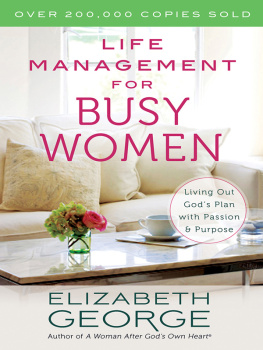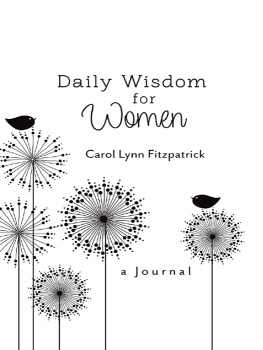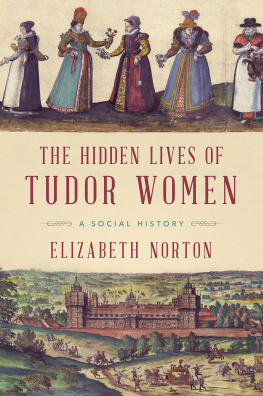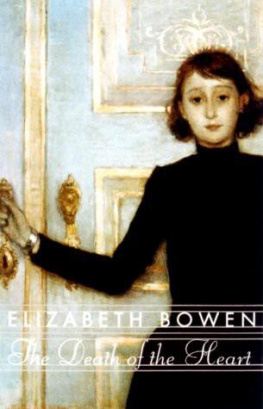THE
GIRL OF THE PERIOD
ETC.
VOL. I.
[ Reprinted , by permission, from the Saturday Review ]
THE
GIRL OF THE PERIOD
AND OTHER
Social Essays
BY
E. LYNN LINTON
AUTHOR OF 'THE ATONEMENT OF LEAM DUNDAS' 'UNDER WHICH LORD?'
'THE REBEL OF THE FAMILY' 'IONE' ETC.
IN TWO VOLUMES
VOL. I.
printer's logo
LONDON
RICHARD BENTLEY & SON, NEW BURLINGTON STREET
Publishers in Ordinary to Her Majesty the Queen
1883
[All rights reserved]
LONDON: PRINTED BY
SPOTTISWOODE AND CO., NEW-STREET SQUARE
AND PARLIAMENT STREET
Dedicated
TO
ALL GOOD GIRLS
AND
TRUE WOMEN
PREFACE.
So many false reports followed the appearance of these essays, that I am grateful to the authorities of the Saturday Review for their present permission to republish them under my own name, even though the best of the day has a little gone by, and other forms of folly have been flying about since these were shot at. The essays hit sharply enough at the time, and caused some ill-blood. 'The Girl of the Period' was especially obnoxious to many to whom women were the Sacred Sex above criticism and beyond rebuke; and I had to pay pretty smartly in private life, by those who knew, for what they termed a libel and an untruth. With these passionate repudiators on the one hand, on the other were some who, trading on the enforced anonymity of the paper, took spurious credit to themselves for the authorship. I was twice introduced to the 'Writer of the "Girl of the Period."' The first time he was a clergyman who had boldly told my friends that he had written the paper; the second, she was a lady of rank well known in London society, and to this hour believed by her own circle to have written this and other of the articles included in the present collection. I confess that, whether for praise or blame, I am glad to be able at last to assume the full responsibility of my own work.
In re-reading these papers I am more than ever convinced that I have struck the right chord of condemnation, and advocated the best virtues and most valuable characteristics of women. I neither soften nor retract a line of what I have said. One of the modern phases of womanhoodhard, unloving, mercenary, ambitious, without domestic faculty and devoid of healthy natural instinctsis still to me a pitiable mistake and a grave national disaster. And I think now, as I thought when I wrote these papers, that a public and professional life for women is incompatible with the discharge of their highest duties or the cultivation of their noblest qualities. I think now, as I thought then, that the sphere of human action is determined by the fact of sex, and that there does exist both natural limitation and natural direction. This creed, which summarizes all that I have said in extenso, I repeat with emphasis, and maintain with the conviction of long years of experience.
E. Lynn Linton.
1883.
THE GIRL OF THE PERIOD.
Time was when the phrase, 'a fair young English girl,' meant the ideal of womanhood; to us, at least, of home birth and breeding. It meant a creature generous, capable, modest; something franker than a Frenchwoman, more to be trusted than an Italian, as brave as an American but more refined, as domestic as a German and more graceful. It meant a girl who could be trusted alone if need be, because of the innate purity and dignity of her nature, but who was neither bold in bearing nor masculine in mind; a girl who, when she married, would be her husband's friend and companion, but never his rival; one who would consider his interests as identical with her own, and not hold him as just so much fair game for spoil; who would make his house his true home and place of rest, not a mere passage-place for vanity and ostentation to pass through; a tender mother, an industrious housekeeper, a judicious mistress.
We prided ourselves as a nation on our women. We thought we had the pick of creation in this fair young English girl of ours, and envied no other men their own. We admired the languid grace and subtle fire of the South; the docility and childlike affectionateness of the East seemed to us sweet and simple and restful; the vivacious sparkle of the trim and sprightly Parisienne was a pleasant little excitement when we met with it in its own domain; but our allegiance never wandered from our brown-haired girls at home, and our hearts were less vagrant than our fancies. This was in the old time, and when English girls were content to be what God and nature had made them. Of late years we have changed the pattern, and have given to the world a race of women as utterly unlike the old insular ideal as if we had created another nation altogether. The Girl of the Period, and the fair young English girl of the past, have nothing in common save ancestry and their mother-tongue; and even of this last the modern version makes almost a new language, through the copious additions it has received from the current slang of the day.
The Girl of the Period is a creature who dyes her hair and paints her face, as the first articles of her personal religiona creature whose sole idea of life is fun; whose sole aim is unbounded luxury; and whose dress is the chief object of such thought and intellect as she possesses. Her main endeavour is to outvie her neighbours in the extravagance of fashion. No matter if, in the time of crinolines, she sacrifices decency; in the time of trains, cleanliness; in the time of tied-back skirts, modesty; no matter either, if she makes herself a nuisance and an inconvenience to every one she meets;the Girl of the Period has done away with such moral muffishness as consideration for others, or regard for counsel and rebuke. It was all very well in old-fashioned times, when fathers and mothers had some authority and were treated with respect, to be tutored and made to obey, but she is far too fast and flourishing to be stopped in mid-career by these slow old morals; and as she lives to please herself, she does not care if she displeases every one else.
Nothing is too extraordinary and nothing too exaggerated for her vitiated taste; and things which in themselves would be useful reforms if let alone become monstrosities worse than those which they have displaced so soon as she begins to manipulate and improve. If a sensible fashion lifts the gown out of the mud, she raises hers midway to her knee. If the absurd structure of wire and buckram, once called a bonnet, is modified to something that shall protect the wearer's face without putting out the eyes of her companion, she cuts hers down to four straws and a rosebud, or a tag of lace and a bunch of glass beads. If there is a reaction against an excess of Rowland's Macassar, and hair shiny and sticky with grease is thought less nice than if left clean and healthily crisp, she dries and frizzes and sticks hers out on end like certain savages in Africa, or lets it wander down her back like Madge Wildfire's, and thinks herself all the more beautiful the nearer she approaches in look to a negress or a maniac.










